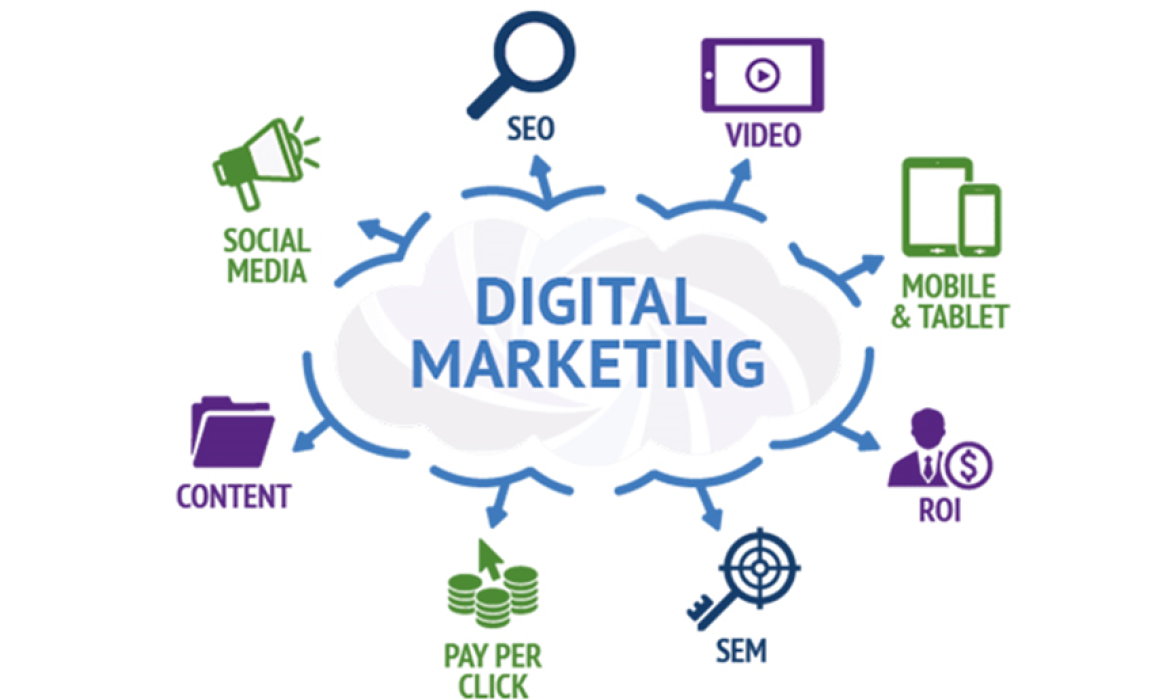An Overview of Digital Marketing
An Overview of Digital Marketing
Digital or “online marketing” involves the promotion of brands using the internet and other digital communication platforms. This includes email, social media, online advertising, text communications, and messages with multimedia. Using traditional marketing techniques, it could be challenging to reach customers who are interested in the products or services you offer. But with digital marketing, you can focus on those who are drawn to your products or services.
Key Benefits of Digital Marketing
The use of digital marketing as a medium for customer communication has grown significantly over time. Companies are currently raising investments in their digital marketing teams. Digital marketing offers a variety of advantages. Let’s go over the specific benefits of digital marketing in more depth.
Also Read:- An Overview of Content Creation
Cost Effective
Since all marketing initiatives for digital platforms originate online, they are less expensive. It is possible to communicate with several consumers at once and send them tailored messages. Hence, digital marketing offers a better cost-benefit ratio due to its targeted and effective strategy.
Easy customer interaction to boost loyalty
In order for your clients to develop trust in your business and brand, it is crucial that you communicate with them frequently. Digital marketing enables businesses to communicate with clients on a regular basis, understand their touch points, and do much more. Additionally, it helps to promote accountability, which is essential for developing an effective connection with your clients.
Easy to Find the Right Audience
The importance of this outweighs all the other advantages of digital marketing. You can simply reach the proper audience without spending a lot of money. Additionally, after you have successfully defined your target audience, you will find it much simpler to contact and communicate with them. Digital marketing helps businesses develop the correct marketing plan for the right audience by utilising efficient targeting tools like search engine optimisation (SEO), PPC (pay-per-click), and so on.
Also Read:- All you need to know about SMS 📨 marketing
Constantly generate leads
It is widely accepted that the leads generated by the digital marketing team are given to the sales teams for further action. Utilising analytical tools like Google Analytics, digital marketing aids in the collection of high-quality leads. In reality, lead generation costs are less than those associated with conventional marketing strategies. Additionally, lead generation occurs continuously and with high quality rather than in just one phase.
Improved brand trust
Your business can establish a reputation in a larger market with digital marketing. You can use blogs and opinions to share helpful information, rely on influencers to promote your brand, exchange guest articles with other businesses, develop case studies, and turn user participation into content. The best part is that leaving your mark doesn’t need a significant commitment of time, energy, money, or resources.
Also Read:- 7 Smart Ideas to design a small balcony Garden
Types of Digital Marketing
Digital marketing strategies can be classified on the basis of the kind of platform being used, the type of search (paid or organic), the content type, the medium type, or the method used. Below are some typical examples of digital marketing.
- Social media marketing
- Affiliate marketing
- Online advertising
- Content Marketing
- Influencer Marketing
- Search Engine Marketing
- Mobile marketing
- Collaboration
- Viral Marketing
- Email Marketing
- Pay-per-click marketing
Also Read:- 7 best yoga mats for exercising at home or in the gym
Do all types of businesses benefit from digital marketing?
Any business in any sector may succeed with digital marketing. Regardless of the products or services your business offers, digital marketing always entails developing buyer personas to determine the needs of your audience and producing worthwhile online content. That does not, however, imply that all organisations should employ a digital marketing strategy in the same manner.
B2B Digital Marketing
Your digital marketing initiatives will probably be focused on online lead generation if your organisation is business-to-business (B2B), with the ultimate objective being for a lead to speak with a salesperson. Your marketing plan may have as its objective attracting and converting the best leads for your representatives to sell via your website and supporting online platforms.
Also Read :- 7 Best Trendy Curtains for Home Décor
B2C Digital Marketing
The goal of your digital marketing campaigns may be to attract visitors to your website and convert them into customers without ever having to speak to a salesperson, depending on the price range of the products that your business sells directly to consumers (B2C).Instead of concentrating on “leads” in the conventional sense, focus on streamlining the buyer’s journey from the moment a person enters your website to the moment they place an order. Due to the possibility that your product features are more advanced in the sales process than they would be for a B2B company, you might need to use more calls-to-action to boost purchases.
Conclusion
The demand for digital marketing has fundamentally altered how people operate organisations, particularly small firms. It is quick, interesting, and easily accessible with a single button click. All you have to do is establish an online presence and begin interacting with new clients to create leads or quickly assist your current, devoted consumers.

